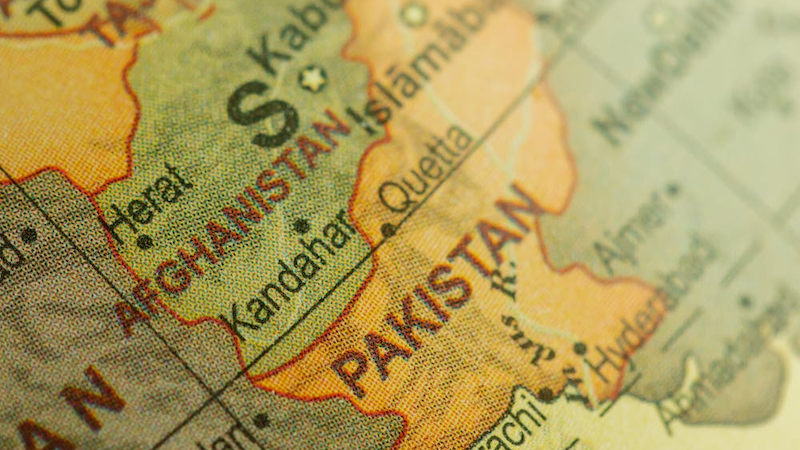
The Shanghai Cooperation Organisation (SCO) is an influential Eurasian organization focused on political, economic, security, and defense issues. Established in 2001 by China and Russia, the SCO comprises nine full member states, three observer states, and six dialogue partners.
Pakistan will host the upcoming SCO summit from October 15-16, following India's chairmanship in 2023. This summit will be Pakistan's first opportunity to host SCO leaders since it became a full member in 2017, marking a significant moment in the country's diplomatic landscape. Heads of government from SCO member states, including India, Pakistan, China, Russia, Kazakhstan, Kyrgyzstan, Tajikistan, Uzbekistan, and Iran, are expected to attend. Hosting the SCO Summit provides Pakistan an opportunity to demonstrate its commitment to regional cooperation and stability, and to address various concerns through dialogue and diplomacy.
Indian Foreign Minister Subrahmanyam Jaishankar will travel to Pakistan for the SCO summit, marking the first visit by an Indian foreign minister to the country in nearly ten years. At the annual Sardar Patel Memorial Lecture on Governance in New Delhi, Mr. Jaishankar emphasized, "I'm not going there to discuss India-Pakistan relations. I'm going there to be a good member of the SCO," highlighting his commitment to his role within the organization over bilateral matters. The SCO is a significant regional bloc that consists of China, Russia, Central Asian republics, and Iran, which are vital actors in India's strategic and economic interests. By strengthening ties with Russia and Central Asia, India aims to counterbalance China's growing regional influence through the Belt and Road Initiative (BRI). India's absence from a platform that allows it to engage with key regional actors could enable rival states like China to gain dominance, potentially sidelining India in crucial geopolitical discussions. Thus, India views its participation in the SCO summit as a strategic necessity to assert itself amid shifting regional geopolitics, especially with Pakistan emerging as a potential market.
However, the main agenda of the SCO Summit is combating cross-border terrorism, with a focus on isolating countries that harbor terrorists and enhancing the Regional Anti-Terrorism Structure (RATS). Economic cooperation will also be emphasized, featuring trade and investment initiatives, and highlighting the "Make in India" program as a potential driver for global growth, particularly with Global South nations. Addressing climate change through sustainable practices and climate-resilient infrastructure is another key agenda item, aligning with the SCO's broader goals of environmental protection. Under the theme "Strengthening Multilateral Dialogue Striving Towards a Sustainable Peace and Prosperity," the summit aims to foster cooperation amid global tensions. Additionally, discussions will cover regional stability and security, with a focus on conflict resolution, promoting a multipolar world order, and strategizing for future cooperation.
The economic importance of the Shanghai Cooperation Organisation (SCO) is immense and cannot be overlooked. Collectively, the SCO member states account for nearly 40% of the global population and contribute about 25% of the world's GDP. This region encompasses some of the fastest-growing economies, including major players like China and India, as well as resource-rich Central Asian nations. For Pakistan, active participation in such a significant organization, with its vast demographic and economic influence, is crucial for fostering its own economic development and ensuring national security.
Engaging with the SCO offers Pakistan numerous opportunities to enhance trade relations, attract investment, and access diverse markets, which are essential for driving economic growth. Additionally, being part of this bloc allows Pakistan to collaborate on critical issues such as energy security, infrastructure development, and counter-terrorism initiatives. As the SCO continues to evolve, Pakistan's involvement can help it tap into the region's potential while strengthening its geopolitical position, thereby promoting greater stability and prosperity within its borders.
Pakistan has historically served as a bridge between South and Central Asia due to its strategic geographic location, and the upcoming SCO summit will reinforce this role. The organization's focus areas align closely with Pakistan's interests, particularly as it has faced various internal and external security challenges. As the SCO expands its emphasis beyond security to include economic and infrastructural development, Pakistan is well-positioned to be a key player, particularly as an energy and trade corridor connecting Central Asia to the Indian Ocean. The China-Pakistan Economic Corridor (CPEC) exemplifies this connectivity, and the SCO summit has the potential to further enhance Pakistan's significance in regional trade and commerce. Pakistan's strengthening partnership with China, the SCO's most influential member, provides it with a foundation to pursue its foreign policy interests more confidently. By aligning itself with China's Belt and Road Initiative (BRI) through the CPEC, Pakistan can promote intra-regional connectivity, trade, and investment within the SCO framework.
As Pakistan gears up to host the SCO summit, it is poised to play a crucial role in connecting continents and promoting regional collaboration. By utilizing its strategic location and building partnerships, Pakistan can effectively manage the complexities of modern geopolitics while tackling common challenges. This summit not only provides a forum for dialogue but also highlights Pakistan's dedication to driving economic growth, security, and stability alongside its neighbors. In this way, Pakistan can strengthen its standing as an active and responsible participant in the Global South, ultimately aiding in the creation of a more interconnected and prosperous Eurasia.